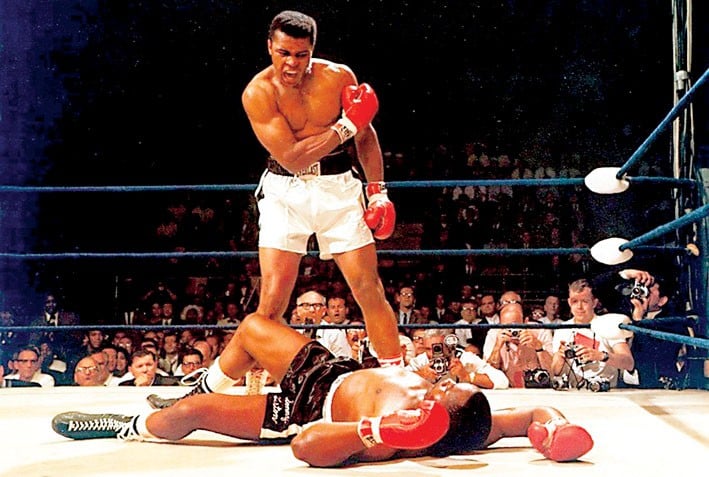
Muhammad Ali was the greatest not only because of his three World Heavyweight titles, but because he fought some of his fiercest battles outside the boxing ring

Muhammad Ali was undoubtedly the greatest athlete of the century, and it may take a few more centuries to produce another athlete of his grit, dexterity and popularity. He floated like a butterfly and stung like a bee to knockout his opponents in split seconds.
But Muhammad Ali was the greatest not only because of his three World Heavyweight titles, but because he fought some of his fiercest battles outside the boxing ring, on the side of the disenfranchised, the downtrodden and the disadvantaged.
Muhammad Ali will thus continue to inspire generations to take up the fight against prejudice, injustice and discrimination. This perhaps will be his greatest legacy, said Kofi Annan.
Three-times world champion and Olympic gold medalist, Ali will remain one of the most influential boxers of all time. Muhammad Ali surpassed his sport.
He renounced his name Cassius Clay, converted to Islam, and campaigned alongside the Nation of Islam. In 1967, he declared himself a fervent opponent of Vietnam War and refused to fight for the US.
Due to his outspoken condemnations, he was stripped of his world championship title and his boxing licence. After 1970, he was allowed to resume boxing. He not only resumed boxing but staged a successful comeback through "Rumble in the Jungle" against George Foreman in Kinshasa in 1974. A true media magnet, Muhammad Ali will always be remembered for his wit and showmanship during fight.
It is difficult to find examples of athletes who possessed what Ali did -- dominance in sport, commitment to the cause of black freedom and compassion towards the marginalised. He was indeed the Abdul Sattar Edhi of combat sports.
Cameroonian football player Samuel Eto’o stated in a TV interview that a black player had to do three or four times what others are doing to be recognised. Nick Symmonds, world 800m silver medalist, denounced the Nike monopoly as the equipment supplier for US Olympic team in 2015 because of which Symonds was not selected for World Championship in Beijing. But none of them had the scope and scale of Muhammad Ali who was a figure larger than life.
Muhammad Ali along with Eli Wolff, who was one of my course instructors during the Master’s degree in Sport for Development Peace & Conflict Resolution, established Muhammad Ali Centre in Louisville, US, in 2013, a place that is a big sport museum and is instrumental for initiating social change through sport.
Both Ali and Wolff later initiated the Social Change Forum for creating a space to have conversations around the power of sport and social change.
Each year this forum has a different theme and 2016’s was "Creating a Declaration for Human Rights in Sports".
Muhammad Ali will thus continue to be the guiding light for the world both in and out of the boxing ring. He is an example for everyone. Speaking truth even if invites the wrath of the powerful as Ali did should always be hailed.
Boxing and other combat sports may or may not prosper in Pakistan for one reason or the other but the spirit and passion of Muhammad Ali for his fellow human beings will always remain alive and vibrant in the hearts of Pakistanis.